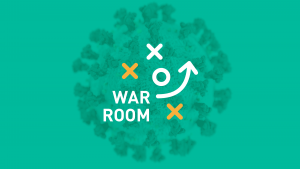By Natasha De Caiado Castro in Update or Die
One thing I can say: the latest edition of CES 2020 (Consumer Electronic Show), the biggest technology fair in the world, which took place last week in Las Vegas, in the United States, brought to the public consistent improvements of previously launched applications and technologies. I didn’t notice any major launches, but I noticed an immense trend in solutions for health, well-being, Internet of Things and, a lot, a lot of partnership between brands to bring different and even unusual combos.
One of the highlights was the key note from Mercedes-Benz, which launched the Vision AVTR, a car with a futuristic model, spherical wheels that allow the vehicle to move forward, sideways and even diagonally. On the dashboard, the driver does not find the steering wheel, only a joystick, as the vehicle is intended to be autonomous. In addition to a sustainable concept, the car is powered by graphene-based organic battery cells. The interior of the vehicle is made with recycled plastic and vegan leather. During the launch, several actors from the Avatar saga were on stage to promote the car, which was based on the production of James Cameron.
Another novelty was the launch of Toyota, which announced plans for a “city of the future” for an average of 2,000 people, where it will test autonomous vehicles, intelligent technology and robot-assisted living. The ambitious project, dubbed Woven City, is due to start next year at the foot of Mount Fuji, Japan, about 100 kilometers from Tokyo. In announcing the project at CES, Toyota CEO Akio Toyoda described the new city as a “living laboratory” that will allow researchers, scientists and engineers to test emerging technologies in a “real-life environment”.
The new development will be built on a 175-acre site that previously housed a Toyota plant. Describing the city as “fully sustainable”, the company said the project will be powered by hydrogen fuel cells and solar panels on the roof. Only fully autonomous, zero-emission cars can operate on their streets. A fleet of autonomous vehicles, known as Toyota e-Palettes, will be used for delivery and retail purposes.
Read in full: https: //www.updateordie.com/2020/01/16/ces-2020-melhorias-que-farao-diferenca-no-dia-a-dia-das-pessoas/




